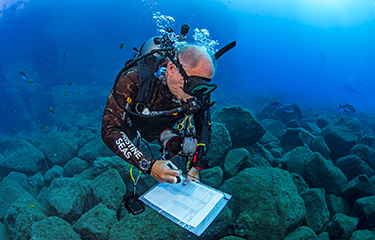A study recently published in Science Advances providing before and after assessment of the impacts of Mexico’s Revillagigedo National Park claims there have been no negative consequences for the fishing industry.
The study, performed by a team of U.S. and Mexican researchers, found evidence that Mexico’s industrial fishing sector had no economic losses five years after the creation of the national park. Revillagigedo National Park was created in 2017 and protects 148,087 square kilometers of ocean south of the Baja California peninsula in the Pacific Ocean.
The park consists of a marine protected area (MPA), with a complete ban on all commercial activity inside its boundaries. Dubbed the “Galápagos of Mexico” the area is home to more than 300 species of fish, 36 of which are found nowhere else.
Prior to the establishment of the MPA, the Mexican fishing industry argued it would cause a potential loss of 20 percent of their tuna and pelagic catch, according to a press release by the Scripps Institution of Oceanography, a department of University of California, San Diego – which performed the study alongside the Mexican Center for Marine Biodiversity, the Institute of Americas’ Gulf of California Marine Program, and the National Geographic Society. However, the study found almost no impact on commercial fishing at all.
Scripps Institution of Oceanography Post-Doctoral Researcher Fabio Favoretto, one of the paper's co-authors, told SeafoodSource the goal of the study was to examine how MPAs actually impact commercial fishing.
“We wanted to debunk some assumptions made before the MPA implementation,” Favoretto said.
Researchers used satellite tracking, fish catches, and new AI tools from the Allen Institute for AI’s Skylight platform, as well as machine-learning techniques to help identify patterns associated with fishing vessels that frequented the region. They used government-mandated GPS devices installed on 2,000 fishing vessels in Mexico to collect tracking data, which Favoretto said was critical to determining whether the industry was complying with the new MPA.
According to Favoretto, fishing effort in the MPA decreased by ...
Photo courtesy of Octavio Alburto








